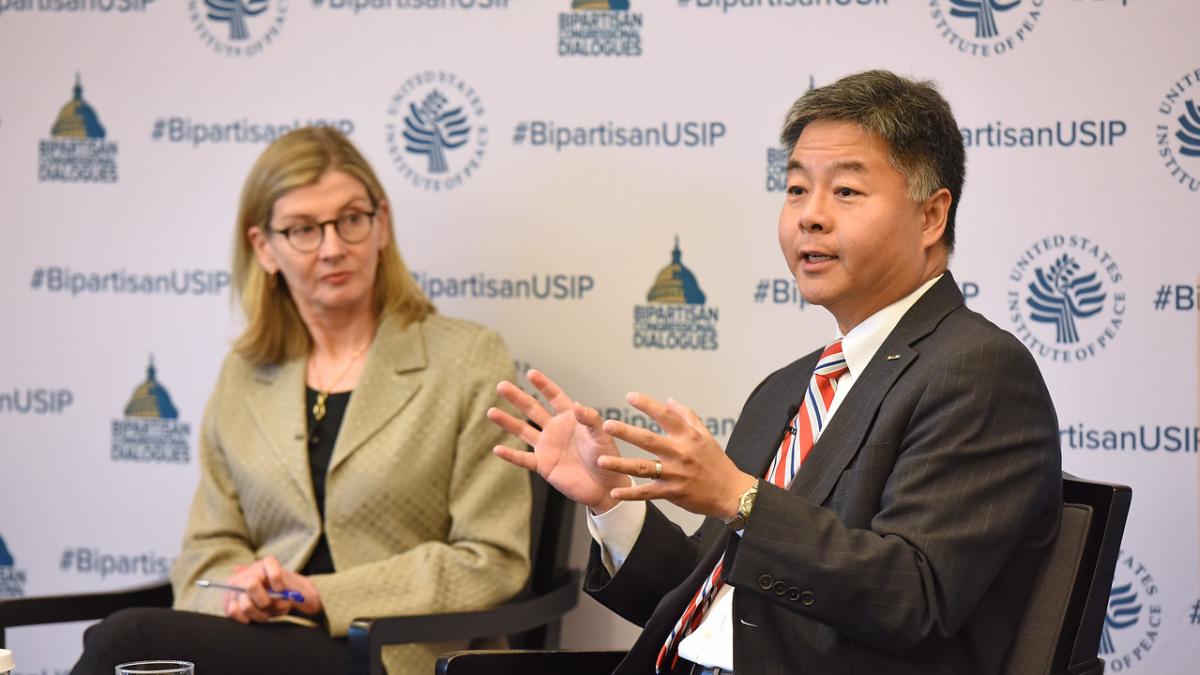National Security and Foreign Affairs

For more information concerning work and views related to National Security and Foreign Affairs, please contact our office.
More on National Security and Foreign Affairs
FOR IMMEDIATE RELEASE
Washington – Today, Congressman Ted W. Lieu (D | Los Angeles County) issued the following statement after the House passed the Modernizing Government Technology Act, legislation Mr. Lieu cosponsored that the Obama White House previously outlined as one component of the Cybersecurity National Action Plan.
The Justice Department decision to name former FBI Director Robert Mueller as special counsel for the investigation into possible collusion between members of the Trump administration and Russia, as well as the firing of former FBI Director James Comey, was widely applauded by lawmakers and officials with a few exceptions, most notably Donald Trump, who tweeted his displeasure Thursday after being kept in the dark until less than an hour before the Justice Department announ
Today a bipartisan group of lawmakers introduced in both the House and Senate a bill that would formalize the Vulnerability Equities Process (VEP) into law. The proposed legislation, the Protecting our Ability To Counter Hacking (PATCH) Act, is sponsored by Senators Brian Schatz (D-Hawai‘i), Ron Johnson (R-Wis.), and Cory Gardner (R-Colo.) (all members of the Senate Committee on Commerce, Science, and Transportation) and Representatives Ted Lieu (D-Calif.) and Blake Farenthold (R-Texas).
Exploits developed by the National Security Agency are very likely at the core of a destructive breed of the WannaCry malware that is wreaking havoc around the globe.
The release of NSA tools into the wild by the Shadow Brokers group has raised concerns about the process by which IT vulnerabilities discovered by NSA hackers are shared with software and hardware vendors.
The "Wanna Cry" ransomware attack producing global shockwaves has renewed focus on the activities of the National Security Agency (NSA) and how the government decides to disclose cyber vulnerabilities to the private sector.
The ransomware campaign, which broke out on Friday and has spread to at least 150 countries and 300,000 machines, is widely believed to be based on an NSA hacking tool leaked to the public earlier this year that exploits a vulnerability in Microsoft's Windows operating system.
Democrats and Republicans on Capitol Hill expressed outrage and concern Tuesday night after a New York Times report suggested the president had asked former FBI director James Comey to shut down an investigation into ousted national security adviser Michael Flynn.
FOR IMMEDIATE RELEASE
Washington – Representative Ted W. Lieu (D | Los Angeles County) has issued the following statement in light of the news that President Trump apparently revealed classified information derived from Israel in his meeting last week with Russian officials at the White House.
President Donald Trump's national security adviser is denying a report that claims Trump shared highly classified intelligence about Islamic State militants with a top Russian diplomat.
H.R. McMaster told reporters in a brief statement that The Washington Post report published Monday "is false" and "at no time" were intelligence sources or methods discussed during Trump's meeting with Russian Foreign Minister Sergey Lavrov.